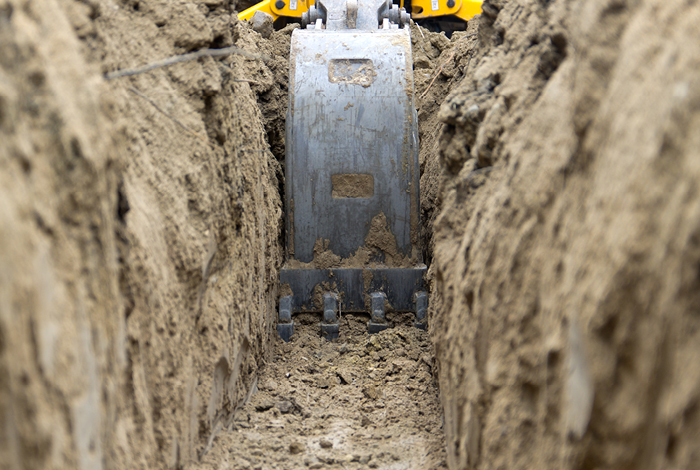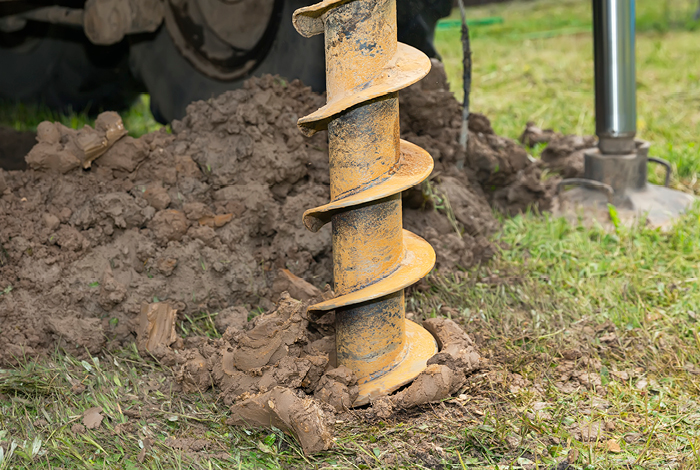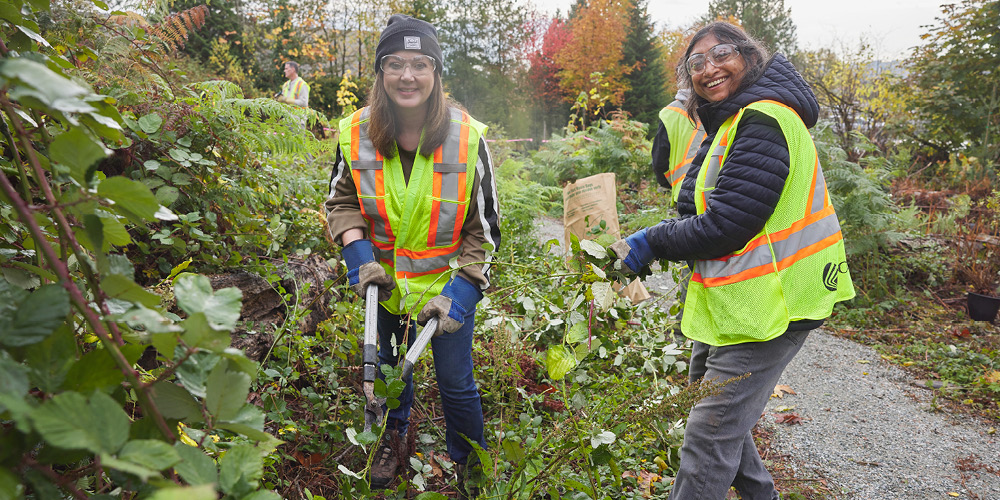5 cautionary tales to help you avoid a dig mistake!
July 13, 2021
Updated March 18, 2024
Think you know where the gas and other utility lines are? Maybe you've done a lot of digging, or even make a career out of it, so you feel like you know where underground utility lines are. Or maybe you usually get a BC 1 Call ticket before you start work, but sometimes it just seems like overkill. Why risk making a dig mistake?
When contractors or homeowners accidentally damage a gas line, our damage prevention investigators hear all kinds of reasons—from very innocent mistakes to pretty negligent errors. Avoid making a dig mistake, always click or call BC 1 Call before digging, and learn from the cautionary stories of others. Here are our top five tales.
1. The experienced excavator’s tale
Our damage prevention investigators received a call in Nanaimo about a line being damaged and gas blowing so freely that the fire department had to be called. The line was damaged while a contractor was excavating to install water lines for a new home build. The on-site supervisor, who had 17 years of excavating experience, said he did not have a BC 1 Call ticket, and did not realize there was gas service in the area.
He also said he was surprised there was no sand or tape to warn him where the line was once he broke ground. Long story short, avoid depending on experience or other indicators of a gas line you may have seen before. Always make sure you request your BC 1 Call ticket and receive information from all utility owners before you start digging.
Need a refresher on what’s expected of you as a contractor before you dig?

2. The “good idea” contractor’s tale
What do you do when you’ve done everything correctly as a homeowner including calling BC 1 Call to get your ticket—but your contractor decides not to use it? In this case, a homeowner had actually made the call three days ahead and assumed they’d checked all the boxes for their fence install.
When our damage prevention investigators showed up, the contractor said he was digging postholes with a shovel—not using his excavator. And instead of using the ticket the homeowner provided, he used his judgement, saying he had a “good idea” where the gas line was, based on the meter proximity and his experience. His "good idea" turned into a bad situation fairly quickly when he damaged a gas line after striking it with a shovel. This is a good example of a ticket only being useful when it’s actually used.
Keep in mind that when gas lines are damaged, contractors are responsible for notifying us and WorkSafeBC. And, we may seek to recover all the associated costs from any organization, or person, who damages an underground line.
3. The realtor’s tale
This story starts off with a routine that every realtor goes through once they acquire a client. The realtor hired a third party to put up a for-sale sign for her new listing. She used her regular supplier, without providing any details other than the address of the house.
The signpost installer was no novice; he had installed many for-sale posts for realtors. They had actually installed a sign at the same address a month ago. This time they damaged a gas line. Remember, before anyone disturbs the ground on any property, even if it’s only a for-sale signpost, someone must contact BC 1 Call.
Hopefully, you or someone working on your behalf will never damage a gas line. But if you do hit a line, here’s what you need to do:
- Stop what you’re doing and clear the area.
- Don’t backfill over or plug a damaged gas line.
- Don’t operate any valves.
- Call FortisBC 1-800-663-9911 or 911 and contact WorkSafeBC at 1-888-621-7233.
4. The bobcat operator’s tale
A bobcat operator was employed by a paving stone company. Working by himself, he graded an area to prepare it for a parking pad. He was no rookie, though, and had completed many paving jobs in the same complex where he was working. The job seemed pretty routine, until it wasn’t.
Unaware of the gas line—not to mention the tech line below the gas line—he excavated and scraped down only eight-10 inches. But that was deep enough to cause damage. He assumed the gas line would be tight to the foundation, but BC 1 Call members,1 such as FortisBC, could have easily provided maps and instructions on how to avoid damaging the gas line and other utilities.
By following the instructions and exposing the buried cables and pipes by hand digging, he could have prevented damage and saved him time.
But do you know what happens after a damaged gas line is reported?
5. The irrigation tale
A power company employee was contracted by a homeowner to install new power poles. While he was using a truck-mounted auger to make a hole, he damaged a gas line. He did not hand dig, locate the gas line or have a BC 1 Call ticket. He took the word of the homeowner that there was no gas in the area.
He usually used BC 1 Call, but decided not to call because he was only digging poles and he was rushing to get out of the way of another contractor eager to start irrigation work on the site. The rush job turned into something much longer than it had to be. Always request a ticket with BC 1 Call and follow the instructions provided by the utility owners.
As a homeowner, are you aware that if a contractor working for you damages an underground gas line or other utility line while digging, you could be liable for repair costs? More importantly, a damaged line on your property is a safety hazard.

The moral of all these stories is fairly obvious. The temptation to cut corners can end up costing you precious time and add unnecessary costs to your project. We’d like to make sure that everyone is safe, so we’ll continue reminding you to click or call BC 1 Call in as many ways as we can. Until next time, make sure all your digging stories have happy endings.



